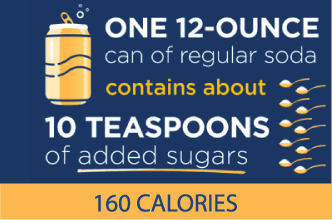Be Sugar Smart: Limiting Added Sugars Can Improve Health
The Problem
Americans consume too much added sugars,* which can put their health at risk.
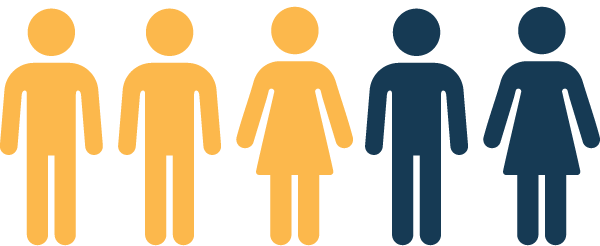
3 in 5 Americans aged 2 years and older exceed the recommendation to consume less than 10% of their total daily calories from added sugars on a given day.
Drinks
Drinks
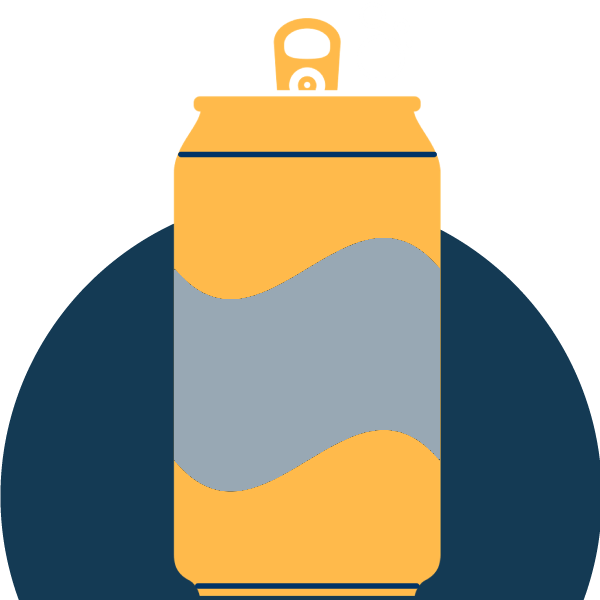 24% from sugary drinks (such as soft drinks, fruit drinks, sports, and energy drinks).
24% from sugary drinks (such as soft drinks, fruit drinks, sports, and energy drinks).
 24% from sugary drinks (such as soft drinks, fruit drinks, sports, and energy drinks).
24% from sugary drinks (such as soft drinks, fruit drinks, sports, and energy drinks).
 11% from coffee and tea (sweetened before sale or added later).
11% from coffee and tea (sweetened before sale or added later).
 11% from coffee and tea (sweetened before sale or added later).
11% from coffee and tea (sweetened before sale or added later).
Foods
Foods
 19% from desserts and sweet snacks.
19% from desserts and sweet snacks.
 19% from desserts and sweet snacks.
19% from desserts and sweet snacks.
 9% from candy and sugars.
9% from candy and sugars.
 9% from candy and sugars.
9% from candy and sugars.
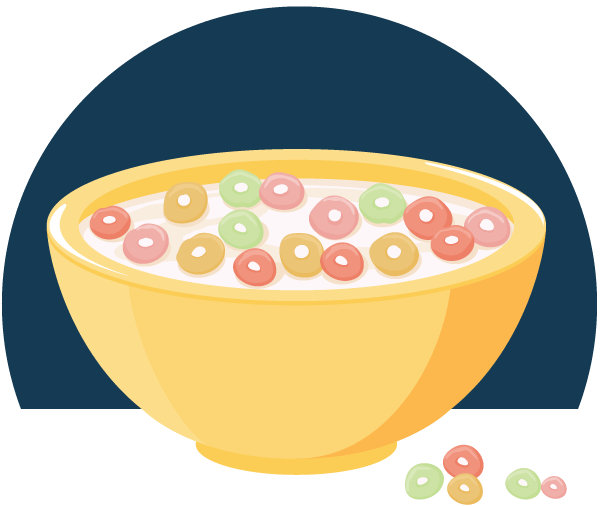 7% from breakfast cereals and bars.
7% from breakfast cereals and bars.
 7% from breakfast cereals and bars.
7% from breakfast cereals and bars.
On average, each day:

Adult men consume 19 tsp of added sugars

Adult women consume 15 tsp of added sugars

*Added sugars are sugars and syrups put in food or drinks when they are processed or prepared. Soda and packaged cookies are processed examples. Putting sugar in tea is an example of a prepared drink. Added sugars contribute calories but no other nutritional value.
Did You Know?
Consuming too many sugary drinks is associated with:
Weight gain and obesity

Type 2 diabetes
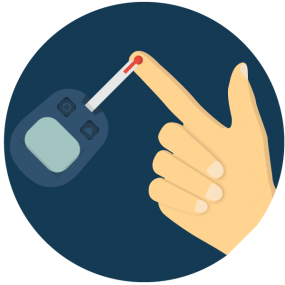
High blood pressure

Tooth decay
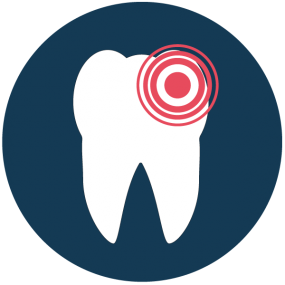
Recommendations: According to the Dietary Guidelines for Americans

Children under 2 should not have any added sugars in their diet.

People 2 years and older should keep added sugars to less than 10% of their total daily calories. For example, if an adult consumes 2,000 calories a day, no more than 200 calories should come from added sugars (or about 12 tsp).
Strategies to Reduce Added Sugars Consumption
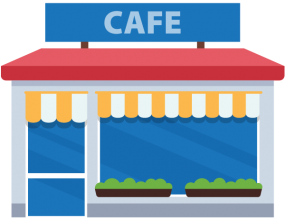
Places where foods are sold or served can improve the availability, promotion, and consumption of healthier foods and drinks by following food and nutrition standards in the Food Services Guidelines. Examples include:
- OFFER a variety of at least 3 fruit options daily, with no added sugars.
- PROVIDE free access to chilled drinking water.
- OFFER low-fat milk and fortified soy drinks with no added sugars.
- OFFER 100% juice with no added sugars.

Early Care and Education (ECE) settings can support healthy eating and drinking habits in young children by following the Caring for our Children Child Care Standards.
- AVOID high-sugar foods and sugary drinks, including candy, cake, cookies, sodas, fruit drinks, and sports and energy drinks.
- ENSURE access to drinking water and other healthier drinks in ECE programs:
- Human milk and/or iron-fortified infant formula for infants 0–12 months of age. Unflavored whole milk for children 1–2 years of age.
- Unflavored low-fat (1%) or fat-free milk for children 2 years and older.
- No more than 4–6 oz of 100% juice per day for children 1–6 years of age.
Support people to rethink their drink
Support people to rethink their drink
 Drinking enough water every day is good for overall health.
Drinking enough water every day is good for overall health.
Water has zero calories. Replacing sugary drinks with unsweetened water can help reduce the amount of added sugars people drink.
 Drinking enough water every day is good for overall health.
Drinking enough water every day is good for overall health.
Water has zero calories. Replacing sugary drinks with unsweetened water can help reduce the amount of added sugars people drink.
Offer healthier drink options
Offer healthier drink options
 Unsweetened coffee or teas, sparkling water, seltzers, and sugar-free flavored waters.
Unsweetened coffee or teas, sparkling water, seltzers, and sugar-free flavored waters.
 Unsweetened coffee or teas, sparkling water, seltzers, and sugar-free flavored waters.
Unsweetened coffee or teas, sparkling water, seltzers, and sugar-free flavored waters.
 Low-fat milk and fortified soy beverages with no added sugars.
Low-fat milk and fortified soy beverages with no added sugars.
 Low-fat milk and fortified soy beverages with no added sugars.
Low-fat milk and fortified soy beverages with no added sugars.
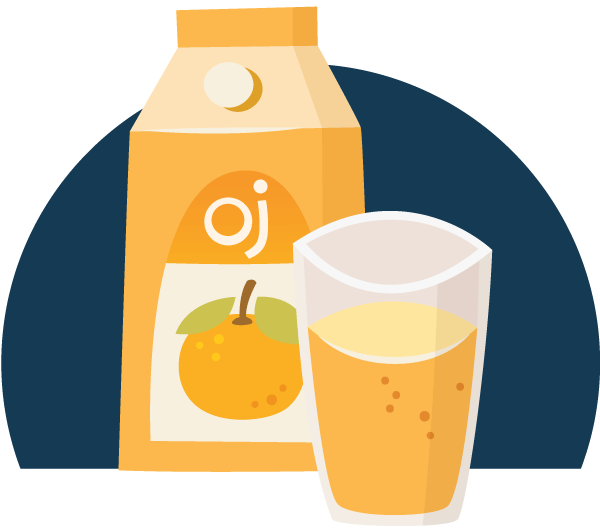 100% fruit or vegetable juice.
100% fruit or vegetable juice.
 100% fruit or vegetable juice.
100% fruit or vegetable juice.
CDC Works To Support Healthy Nutrition By:

Providing data on consumption of added sugars in the United States to better inform programs and policies.

Funding and supporting states and communities to implement nutrition standards that can help reduce intake of added sugars.

Providing resources and information to early care and education providers to help reduce high consumption of added sugars among US children.
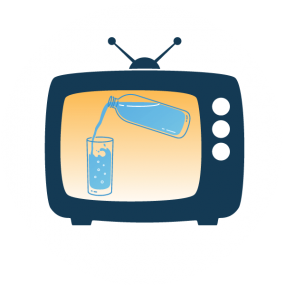
Educating the public by implementing mass communication and social media campaigns to reduce high consumption of added sugars, including those from sugary drinks.
